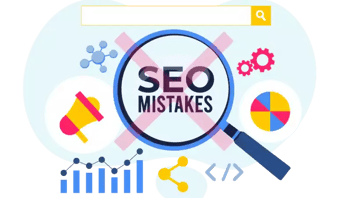Unlock SEO success: Learn how we use HubSpot Content Hub for SEO, boost rankings, increase organic traffic, and optimize our content for success.
The Role of Content Marketing in SEO
When every business is fighting for a spot on the first page of Google, content marketing has proven to be a must-have weapon in our SEO arsenal.
But what exactly is content marketing, and why is it so important? Content marketing isn't just about creating random blog posts or social media updates. It's about creating valuable, relevant, and engaging content to attract, retain, and convert potential customers into loyal ones. And when done right, it will help businesses skyrocket their SEO rankings and bring in a ton of organic traffic.
Search engine optimization (SEO) has become critical to any successful marketing strategy, and Content marketing is the way to go if you want to improve SEO for your website.
Why Content Marketing Matters for SEO
-
72% of B2B buyers start their buying journey with a content piece. The significance of content marketing in driving traffic to your website and generating leads cannot be overstated, as evidenced by this statistic.
-
60% of marketers say content marketing is their top inbound marketing priority. Content marketing is a key strategy for businesses of all sizes.
-
For every $1 spent on content marketing, businesses can expect to earn $2.50 in return. Content marketing offers a promising return on investment, as demonstrated by this statistic.
-
91% of marketers say that content marketing is essential for their business. Marketers acknowledge the significance of content marketing, as demonstrated by this statistic.
Search engines prioritize high-quality, relevant content. Gone are the days when keyword stuffing and link building could get you to the top of the SERPs. To have a solid SEO foundation, exceptional content is vital. Google uses highly sophisticated algorithms that can distinguish between quality content and spammy, low-quality content. They look for content that provides users value, answers their queries, and solves problems.
That's where content marketing comes into play. By creating high-quality and engaging content, businesses can improve their chances of ranking higher in the SERPs. When you create content that resonates with your audience, you're increasing your chances of getting backlinks and social shares and signaling to search engines that you're a trustworthy and authoritative source of information. This can help improve your domain authority–a critical factor in SEO.
Moreover, content marketing allows businesses to target specific keywords and phrases that their audience is searching for. By choosing the right keywords and optimizing their content accordingly, companies can improve their chances of ranking higher in search results for those keywords. For instance, if you're a fitness blogger and create content around the keyword "best home workout equipment," you're more likely to rank higher in search results for that keyword.
Another benefit of content marketing for SEO is that it can help businesses generate more organic traffic. When you create valuable and engaging content, you attract potential customers to your website, increase their chances of staying on it longer, engage with your brand, and convert them into loyal customers.
Overall, content marketing is crucial for SEO because it helps businesses create high-quality, relevant, and engaging content to attract, retain, and convert potential customers into loyal ones. By targeting specific keywords, optimizing their content, and improving their domain authority, businesses can improve their chances of ranking higher in the SERPs and generating more organic traffic.
Types of Content That Boost SEO
Now that we've established why content marketing is essential for SEO, let's dive into the different types of content that businesses can use to boost their SEO rankings.
Blog Posts
Blogs are one of the most popular content platforms used in content marketing. By creating high-quality blog posts optimized for specific keywords, businesses can improve their chances of ranking higher in search results for those keywords. Moreover, blogging allows businesses to showcase their expertise, engage with their audience, and provide valuable insights to help solve their problems.
Videos
Video content has become increasingly popular in recent years. With platforms like YouTube and TikTok, businesses can create engaging video content to attract a wider audience and improve their SEO rankings. Moreover, videos can explain complex concepts, showcase products or services, and provide tutorials to help customers better understand your brand.
Infographics
Infographics are a great way to present complex information in a visually appealing way. By creating infographics optimized for specific keywords, businesses can improve their chances of ranking higher in search results. Moreover, infographics can be shared on social media platforms, which can help generate more backlinks and social shares.
E-books
E-books are a great way to provide in-depth information on a specific topic. By creating high-quality e-books that provide value to your audience, businesses can establish themselves as an authoritative source of information, improve their domain authority, and generate more leads.
Webinars
Webinars are a great way to engage with your audience, provide valuable insights, and showcase your expertise. Moreover, businesses can use webinars to generate leads, build brand awareness, and improve SEO rankings.
The type of content you choose to create will depend on your business goals, target audience, and the resources available. However, by creating high-quality, relevant, and engaging content optimized for specific keywords, businesses can improve their SEO rankings and generate more organic traffic.
How to Optimize Content for SEO
Creating high-quality, relevant, and engaging content is the first step in content marketing. To improve your SEO rankings, you must also optimize your content for search engines. While some of our other content goes into this topic in more detail, we'll give you a quick overview.
Keyword Research
Keyword research is the foundation of SEO. Before creating any content, you must conduct keyword research to identify the keywords and phrases your audience is searching for. By targeting specific keywords in your content, you can improve your chances of ranking higher in search results for those keywords.
On-Page Optimization
On-page optimization refers to the optimization of individual pages on your website. This includes optimizing your title tags, meta descriptions, headers, and content for specific keywords. You need to ensure that your content is structured in a way that is easy to read and understand for both search engines and your audience.
Mobile Optimization
With the increasing use of mobile devices, ensuring your content is optimized for mobile devices is essential. This includes using responsive design, optimizing page load speed, and ensuring your content is easily accessible and readable on mobile devices.
Link Building
Link building is a critical factor in SEO. By generating high-quality backlinks from other reputable websites, you can improve your domain authority and increase your chances of ranking higher in search results. However, it's important to note that not all backlinks are created equal, and you need to focus on generating high-quality backlinks relevant to your industry and audience.
User Experience
User experience is becoming increasingly important in SEO. Search engines prioritize websites with a positive user experience, including fast page load speeds, easy navigation, and engaging content. Therefore, ensuring that your content is designed with your audience in mind and provides a positive user experience is essential.
By focusing on these critical factors, businesses can improve their chances of ranking higher in search results, generate more organic traffic, and achieve their content marketing goals.
You might also like:
Content Marketing and SEO: The Perfect Pair
Content marketing and SEO go hand in hand. While content marketing helps businesses create engaging and informative content that attracts and retains customers, SEO ensures that this content is visible to the right people at the right time.
To remain competitive with the ever-changing digital marketing landscape, businesses must stay updated with the latest content marketing and SEO trends. But it's not just about following the latest trends; it's about creating a comprehensive content marketing and SEO strategy tailored to your business goals, target audience, and available resources.
So, whether you're creating blog posts, videos, infographics, e-books, or webinars, always remember to optimize your content for SEO and provide a positive user experience for your audience. By doing so, you'll be well on your way to achieving your content marketing and SEO goals and creating a robust online presence for your business.
This content is also available in:
- Deutsch: Die Rolle des Content Marketing im SEO
- Español: El papel del content marketing en el SEO
- Français: Le rôle du marketing de contenu dans le SEO
- Italiano: Il ruolo del marketing dei contenuti nella SEO
- Română: Rolul content marketing în SEO
- 简体中文: 内容营销在搜索引擎优化中的作用












Leave a Comment